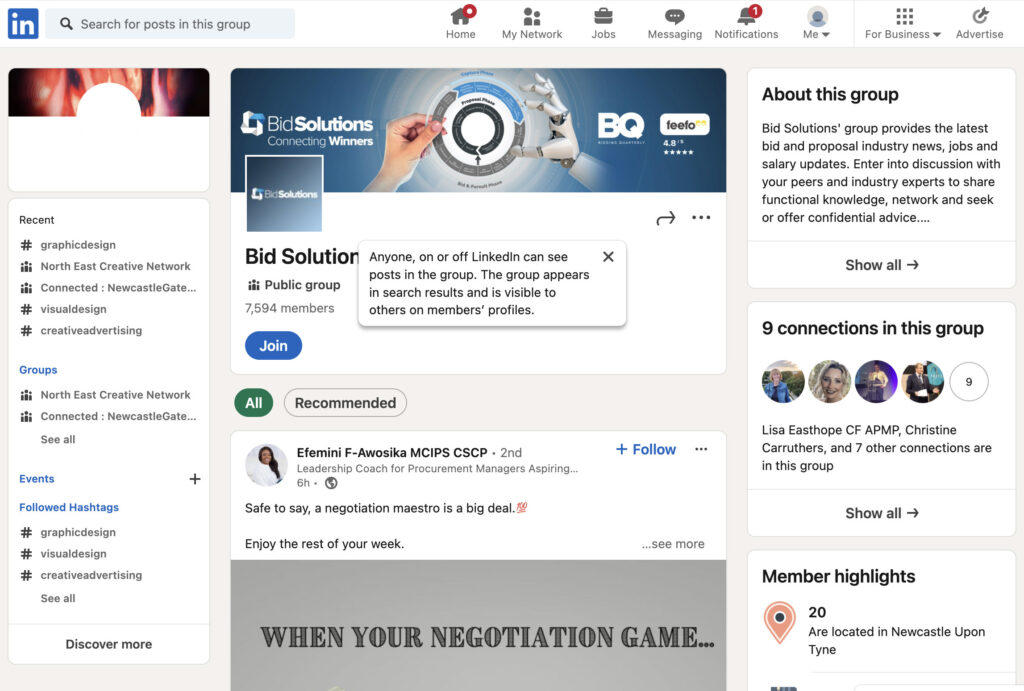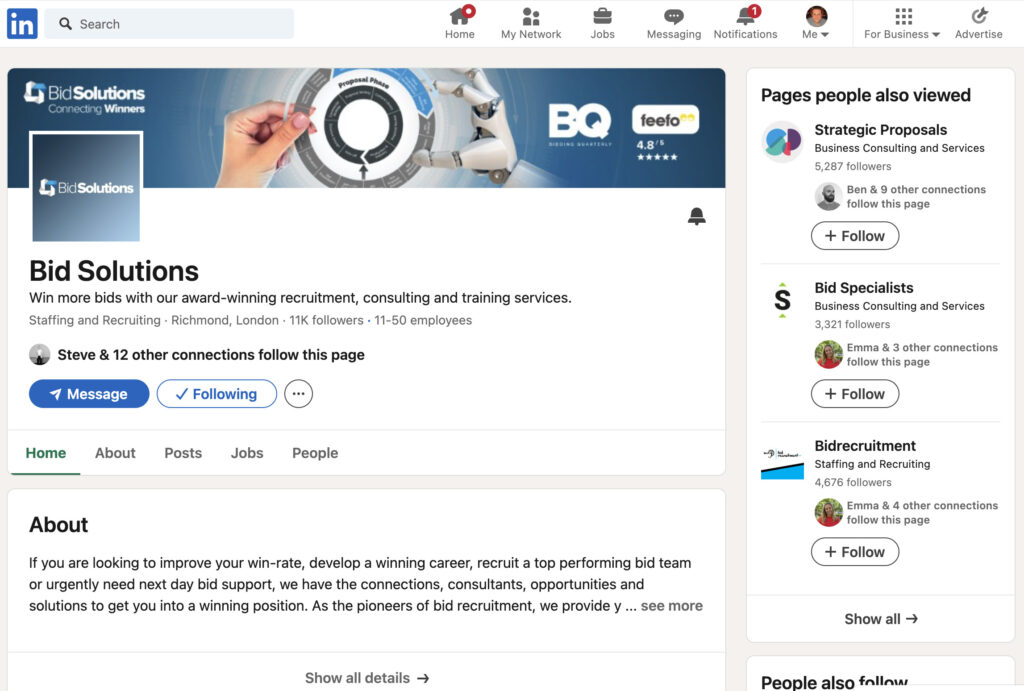Social Media
LinkedIn is the largest professional network on the internet and is an essential part of your job seeking toolkit. A fully completed profile will pay dividends when it comes to finding new employment opportunities, whilst also allowing companies to approach you directly.
As a window to your career, professional interests, education, and skills, it offers potential employers the opportunity to gain a quick but informative perspective on you. Being slightly less formal than a CV and displaying endorsements from clients, managers, and peers, it is an important self-marketing tool that will ensure you stand out from the competition. A LinkedIn profile, written correctly, will complement a CV and enhance your credibility.
Having a LinkedIn profile also allows you to join industry-specific forums and discussion groups. Some groups are open and can be joined by all, others are by invitation only. Contributing to discussions can often enable you to showcase your knowledge and experience, further increasing your credibility among peers and industry professionals.
You can engage with Bid Solutions in a number of ways on LinkedIn.

Bid Solutions Group Page
As a member of the group, you can contribute to the latest conversations or start your own.
Join Group Page
Company Page
Our specialist company page provides all the latest industry news, training opportunities, and job-related information.
Follow Company Page
Individual Page
Connect with Martin Smith, Bid Solutions Managing Director for the latest industry insight and trends.
Connect with Martin SmithImprove the quality of your profile and to stand out from your peers:
- Make your profile visible to the public and include your contact details
- Create a custom URL, including industry key words
- Include a recent, high quality and professional looking photo
- Write a professional summary.
- Include a summary of your responsibilities and accomplishments in the experience section, and make note of any promotions
- Follow companies and individuals of interest
- Join industry groups and contribute to discussions
- Be active in sharing news and posts of interest
- Request endorsements and recommendations
Social networks allow us to be more connected than ever before; they have changed the way in which we interact with family, friends, work colleagues and the wider world. They give us access to a wealth of information, both public and often personal. This means that potential employers can easily learn more about us than we might like.
It is common for discoveries on social networks to influence an employer’s decision when considering an application. Employers research candidates for a number of reasons. Up until the employer interviews you, all they have to work with are a CV and Google.
Know your audience
Your first consideration when posting on your personal profile is who might be able to read this? It is important to understand the primary functions and audiences of the various social networks.
Google yourself
Do some web research on you. See what kinds of things are easy to find and tidy these up if necessary. This is also a good opportunity to assess your privacy settings. Nine out of ten people have a social network profile so make sure your private life stays private.
In a recent survey around 70% of employers admitted to checking out candidates on social networks at various stages of the screening process; 45% researched candidates upon receipt of their CV.
Be aware that when building any profile on a social platform, it is often the images that are paid the most attention. Try to make sure any front-facing images say something positive about you, the rest make private.
Profile pictures
In the past, people have constructed much of their first impression within the first six seconds of meeting you. Now they will have an impression of you before you even enter the building.
Your profile picture can be different depending on which network you are dealing with. Your profile should be a picture of you, not a group of friends, your cat or your favorite celebrity. Make sure the image isn’t lewd, offensive or is of you in a questionable situation. It is also important to ensure that the image isn’t pixelated or blurry.
Whatever you choose, your profile picture needs to be a positive image. Remember, even if your Facebook profile is set to private, people will still be able to view your profile picture.
What are you saying?
Everybody loves to rant about life occasionally, just remember who can see your content and keep your language respectable. Ranting can paint you in a negative light so be mindful of this.
When sharing content on social networks make sure that it is relevant and appropriate. It wouldn’t be appropriate to post a picture of your holiday on LinkedIn; this may be more for Instagram, Facebook or Twitter. Try to share content that is both interesting and relevant to your industry.
If you find that you can’t resist posting controversial content then be ready to justify your actions and opinions at an interview.